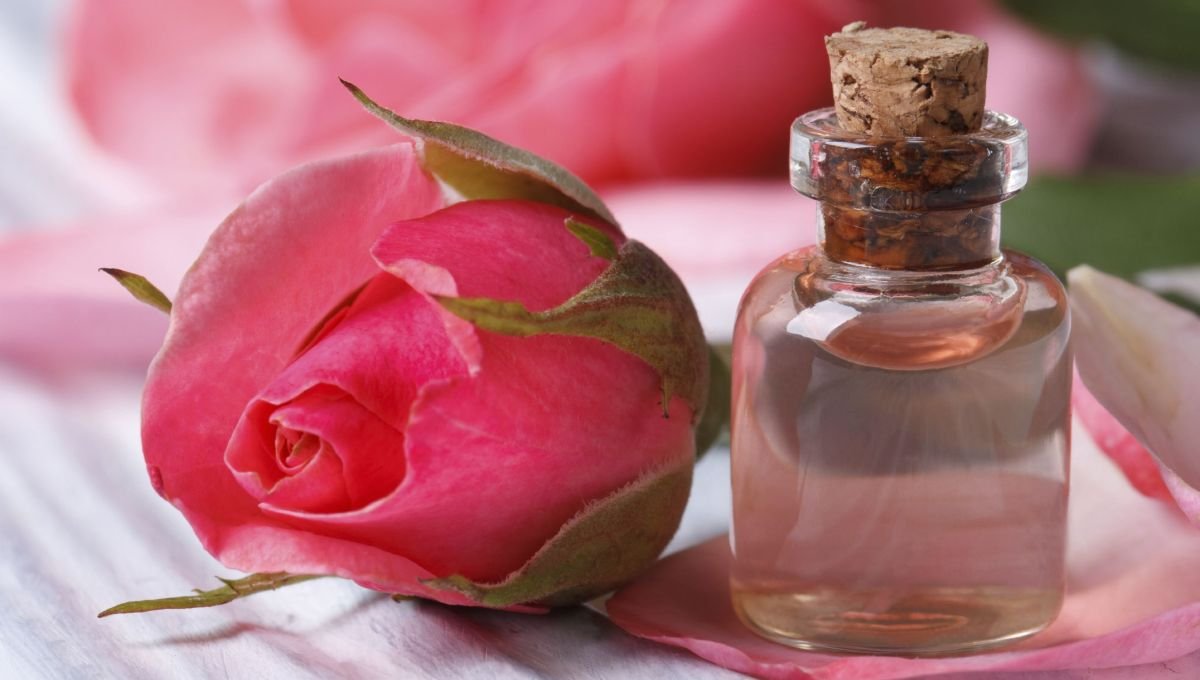Roses have captivated people for millennia for their beauty, scent, and symbolic value. Useful not only for decorative purposes, but also for other things, rose petals can be used to make rose water that has many health properties. It has been used traditionally in both food products, drink products and also beauty products. It’s versatile, can be used for a lot of things, and very easy to make. It can also be used with your favorite skin care products like Mediheal.
Rose offers many health benefits, which is why it’s so popular for skin care. Here’s what you need to know about making rose water and the myriad ways you can use it:
Health benefits of rose flower

The roses’ scent has been shown to reduce stress levels, relieve anxiety, depression, and promote good sleep. Rose also has a wide spectrum of antimicrobial properties and functions as an antioxidant too. More importantly, rose brings a lot of skin benefits, such as reducing redness and skin inflammation, balancing pH levels, and increasing the skin’s permeability for better absorption of nourishing skin care beauty products. Rose is mild enough for sensitive skin and works great for people who suffer from eczema, acne, and psoriasis.
Rose water making

You can purchase rose water products but you can also make it by yourself to save money. Making your own rose water is super easy. Once you already know how to make it, you’ll realize that there are different ways you can use it. Here is a list of the things you’ll need to create DIY home-made rose water:
Method 1 (safe for culinary and cosmetic purposes)
Ingredients
- ½ cup dried organic rose petals (never use chemically farmed rose) OR 1 cup of fresh roses
- 5 cups of purified water
Directions
1. Put the petals and water together in a saucepan or pot. Cover the lid and boil them.
2. After boiling, lower heat and simmer for a good 10 min., until the colors of the rose petals fade. Allow complete cooling.
3. Filter the rose water with a fine-mesh sieve or cheesecloth. Transfer the liquid into a clean and sterilized glass container and store in the refrigerator. This rose water lasts for about two weeks.
Method 2 (for external cosmetic purposes only, not safe for ingestion)
Ingredients
- 12 drops of rose essential oil
- 1 cup distilled water
- 1 teaspoon vodka
Directions
1. Mix the rose essential oil and vodka together.
2. Prepare a sterilized glass jar or bottle with the distilled water.
3. Add the rose oil/vodka mixture into jar/bottle with distilled water.
4. Store in the refrigerator. Shake the contents before use, as the oil may separate from water. This rose water lasts about 6 months to a year.
Rose water uses

Rose water can be used in myriad ways, from personal cosmetic use, cleaning, and culinary purposes. Here are some ways you can use rose water in your daily routines.
- All-purpose toner. Rosewater makes for a great toner that works well for all skin types. Rose water has astringent and anti-microbial properties that make it ideal for combatting acne and oily skin, yet it is also gentle enough for sensitive skin and helps soothe redness and irritation. Make your own rose water toner by adding a tablespoon of rose water to half a cup of distilled water.
- Hydrating face mist. Rose water hydrates your skin as well, and a rosewater mist is perfect for freshening up your face throughout the day. To make your own rose water mist, simply fill ¾ of a spray bottle with rose water and the remaining ¼ with purified or distilled water. You may also add 1-2 drops of another essential oil for added health benefits and natural fragrance. Evening primrose oil and lavender oil go well with this rose water formulation. This formulation can also be used as a perfume.
- Gentle makeup remover. Rose water effectively removes stubborn makeup like mascara, foundation, and eyeliner without abrasing your skin It also prevents skin eruptions due to its antiseptic properties. Make your own rose water makeup remover by mixing equal parts of rose water and jojoba oil. Apply the mixture onto a cotton pad to gently and safely remove stubborn makeup.
- Clarifying hair rinse. Rose water’s antimicrobial propertyis excellent for treating dandruff and other scalp conditions. It also balances your hair’s pH levels. Simply use a cup of rose water as a final hair rinse after washing. You may also dilute your shampoo and conditioner with rose water for added scent and antiseptic properties.
- Relaxing bath water. Add a cup of rose water and rose petals to your tub for a romantic and relaxing bath soak.
- Floral mouthwash. Rose water also makes for an effective mouthwash that kills mouth bacteria and leaves your breath smelling like roses. You may also add a few drops of peppermint oil for added cooling.
- Floral teas and drinks. Rosewater (made from Method 1) can be added to teas, lemonades, alcoholic drinks, and other beverages. Rose water adds a soothing scent and rosy color to your drinks for added elegance and sophistication.
- Fragrance. Rose water is fragrant, it is created by distilling rose petals with steam. It is sometimes used as an alternative chemical-filled to perfumes (mild natural fragrance).
- Stress Reliever. You can simply make it by creating a rose water mist and put it on a spray bottle. You can mist the rose water on your face, wrist or even onto your pillow.
To test if your skin is prone to allergic reaction, apply small amount of the product (just like the size of a dime) in your arm. After 24 hrs, if there is no allergic reaction, then you can safelt use rose water. However, in some cases, a person with very sensitive skin can have very bad reaction because of the particular unknown sensitivity to the product.
Listed below are the possible side-effects:
- Irritation
- Stinging
- Burning
- Redness
After using rose water, if any of these side-effect occurs, then you should see a doctor immediately because it may be a sign of an allergic reaction or infection.
Rose water is an elegant addition to your personal beauty, culinary, and decorative needs. It has many health benefits and a natural way to add a romantic and calming fragrance to your home and environment. Rose water also is considered to be safe. The only exception is if you are allergic to the roses or flowers in general.


















